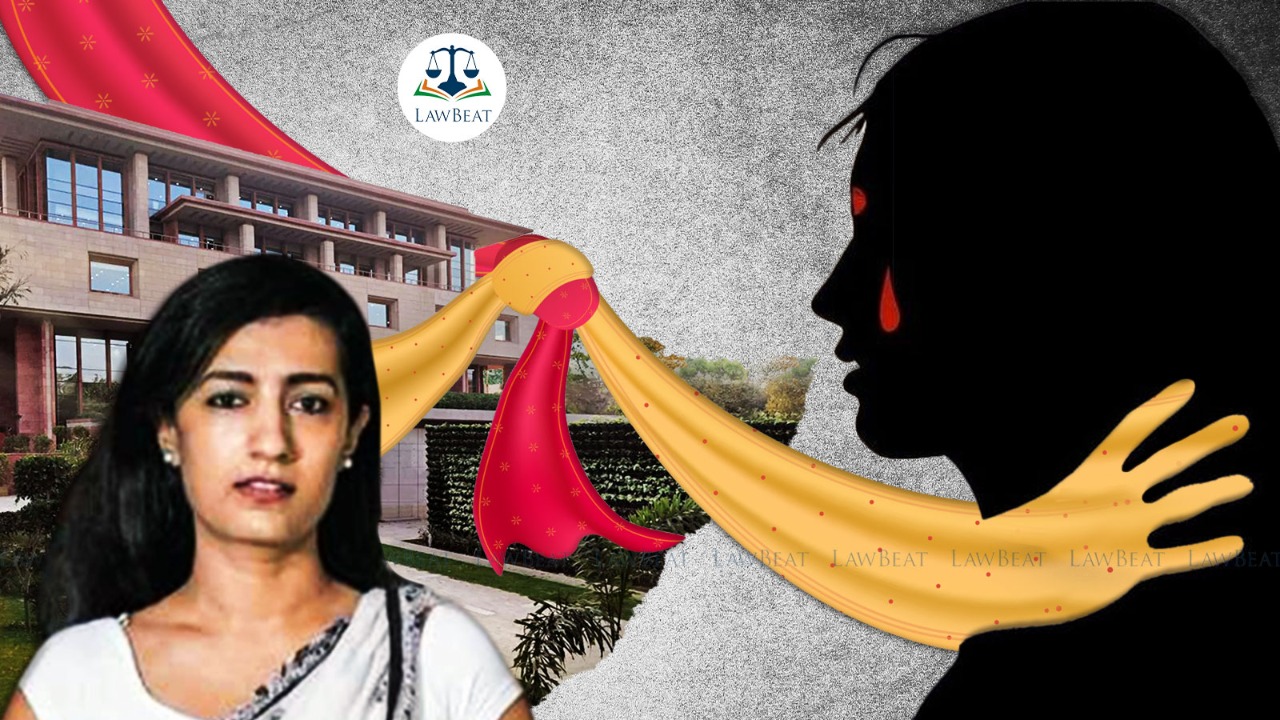"It curtails a woman's right to say a joyful yes": RIT Foundation in arguments for criminalizing marital rape

RIT Foundation, the petitioner in the ongoing hearing in the Delhi High Court against the marital rape exception in IPC, has argued that the exception is also violative of Art.19(1)(a) of the Constitution (right to freedom of speech and expression) insofar as it not only takes away the right of a married woman to say "No" to sexual intercourse, but by implication, also takes away her right to say a "joyful yes".
The matter was being heard by a bench of Justices Rajiv Shakdher and C Hari Shankar.
Adv. Karuna Nundy representing the petitioner inter alia pointed out that, "Conjugal rights end where right to bodily integrity begins," for instance even a Court "can order cohabitation" but "cannot order sex."
On the point that the exception is valid, as it is merely based on "intelligible differentia", she contended that even if the same may be existing, it "bears no rationale nexus even with the purported object of protection of conjugal rights," and is infact "destructive of the objects of the main Section."
Relying on judgments to this effect, she stated that a proviso cannot be used to nullify the objects of the main section, and said that the same applies for an exception as well.
"Exception cannot subsume the main provision to which it is an exception," she emphasized - an effect which was resulting in this case because, while the "object of rape law is that women are not raped, and that no man can force a woman to have sex with him against her will or consent", "this exception essentially says that the husband of a woman can do so."
She further relied on the judgment in Joseph Shine to press that familial structures cannot be regarded as private spaces where constitutional rights are violated and submitted that, the "offence of rape is the act of forcible, non-consensual intercourse by a man on a woman - this is separate/independent of the relationship between the perpetrator and victim."
Nundy continued, "The exception takes away the right of a particular class of human beings. It protects the class of husbands of adult wives."
On the argument that the Court cannot create a new offence and that striking down of the exception would have that effect, she pointed out that, "Rape is already an offence, striking down the exception would not create a new offence but merely create a new class of offenders."
There is a difference between the creation of a new offence, which is an act of a positive nature, and the interpretation of constituents of an existing offense - a negative exercise of judicial review, she submitted.
She urged that "the crux is about moral and legal approbation. It's not about punishing the husband but the man."
She concluded by stating that it's a fact that laws have been struck down for being violative of Art. 19 alone, and that this exception takes away the ability of a woman to say a joyful yes.
Arguing for the exception's unconstitutionality, she said that to the extent it curtails the woman's right to say no, it is unconstitutional.
Calling upon the Court to exercise its written jurisdiction, she argued, "When Art. 226 is involved, the exercise of jurisdiction is not discretionary. Where fundamental rights are concerned, it is the bounden duty of the Courts to act. Discretion is only involved when it is any purpose other than violation of fundamental rights."
Against a submission of the Union of India in its reply has that factors like poverty need to be taken into account before criminalizing marital rape, she asked, "So if it happens on a poor married woman, it's not rape?"
She concluded, "This is the Union of India saying this, this is why we are before the Court."
Cause Title: RIT Foundation vs Union of India
